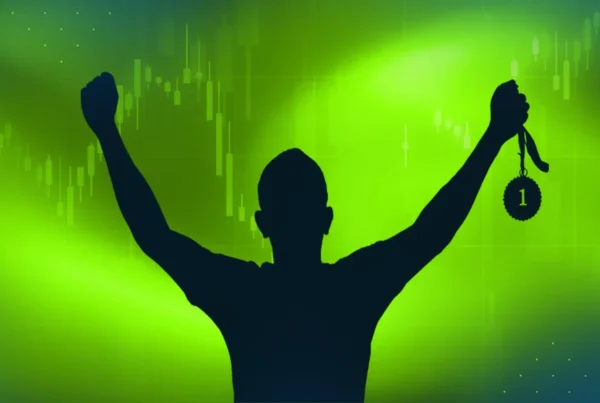
Emotional discipline is the cornerstone of sustainable success in prop trading. The high-pressure environment, combined with market volatility and unpredictability, can easily lead traders astray if they fail to manage their emotions. Maintaining composure under these conditions is what separates consistent traders from those who succumb to impulsive decisions.
The Role of Emotional Control in Trading
Emotional control directly impacts a trader’s ability to make rational decisions. Fear and greed, the two most pervasive emotions in trading, can derail even the most meticulously planned strategies. Fear may cause traders to hesitate, missing out on profitable opportunities or exiting trades prematurely. Conversely, greed often leads to over-leveraging, overtrading, or holding losing positions far beyond reason, hoping for a reversal.
For instance, in a sharp market downturn, an emotional trader might panic and exit at the worst possible time, locking in losses. A disciplined trader, however, evaluates the situation calmly, revisits their trading plan, and determines the best course of action based on data. This ability to act rationally amid chaos is what enables disciplined traders to thrive, even in challenging markets.
Practical Strategies for Enhancing Emotional Discipline
1. Journaling for Self-Awareness
Maintaining a trading journal is one of the most effective ways to improve emotional discipline. Beyond recording trades, document your emotions, thought processes, and decision-making rationale. Reviewing these entries provides invaluable insights into emotional triggers, helping you identify patterns and develop strategies to counteract them. For example, you may discover that you tend to overtrade after a losing streak, which you can address with pre-defined daily trade limits.
2. Mindfulness and Stress Management
Mindfulness practices, such as meditation and deep breathing exercises, can significantly enhance your emotional resilience. These techniques help you stay present and aware of your thoughts, reducing the likelihood of knee-jerk reactions to market fluctuations. Mindfulness isn’t just about relaxation—it’s about cultivating the focus and clarity needed to stick to your trading plan under pressure.
3. Trade Reviews and Objective Analysis
Post-trade reviews should go beyond profit and loss analysis. Evaluate the decisions that led to each trade, considering whether they were driven by strategy or emotion. Did fear prompt an early exit? Did greed push you into over-leveraging? By understanding these tendencies, you can refine your approach and build the mental fortitude to avoid repeating mistakes.
Overcoming Psychological Challenges
Every trader faces psychological hurdles, from performance anxiety to fear of failure. Tackling these challenges requires a proactive approach. Joining a community of traders can be invaluable. Sharing experiences, discussing strategies, and receiving feedback fosters growth and reduces the sense of isolation that many traders face.
Additionally, setting realistic goals helps manage performance pressure. Recognize that trading is a marathon, not a sprint. Success comes from consistent execution over time, not from any single trade or challenge.
Call to Action
Reflect on your trading journey:
– What emotional triggers have hindered your performance?
– How often do fear or greed influence your decisions?
– Are you taking proactive steps to improve your trading psychology?
Share your experiences with fellow traders and seek support. You’re not alone, and collective wisdom can be a powerful resource for overcoming psychological barriers.
Conclusion
Emotional discipline is the foundation of long-term success in prop trading. Strategies like journaling, mindfulness, and trade reviews empower traders to recognize and manage their emotional responses. Coupled with a commitment to continuous self-improvement and community engagement, emotional discipline ensures you stay consistent and focused in the unpredictable world of trading. Ultimately, mastering your emotions may be the most valuable trade you ever make.




